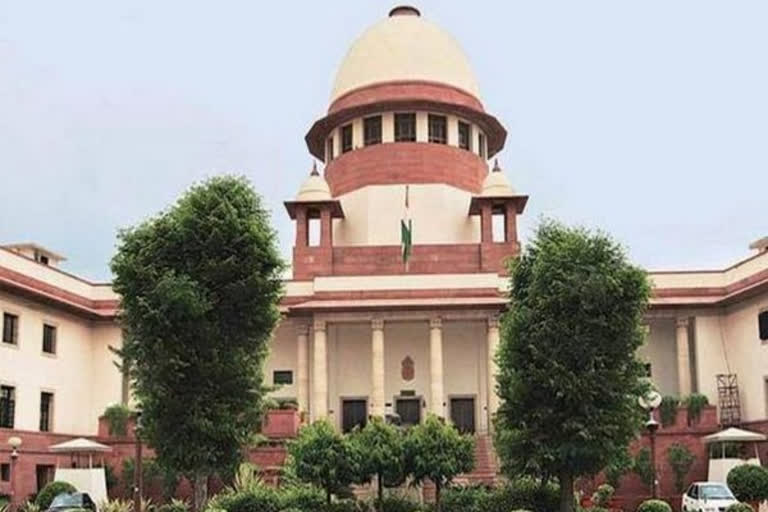New Delhi: Depriving farmers of their livelihood and property without the authority of law would be a violation of the Constitution, the Supreme Court said on Tuesday. A bench of justices Dinesh Maheshwari and Vikram Nath said there is no justification for not paying compensation to farmers for widening of roads. "Construction or widening of road no doubt would be a public purpose but there being no justification for not paying compensation, the action of the respondents would be arbitrary, unreasonable and clearly violative of Article 300A of the Constitution," the bench said.
The top court's judgment came on a plea filed by eight farmers against a Kerala High Court judgment that dismissed their appeals. The appellants are the owners of the land in dispute, measuring 1.7078 hectares. According to the appellants, the panchayat had requested them to let their land be utilised for the construction or widening of the Sulthan Batheri Bypass road and they were assured that they would be given adequate compensation for the land. However, no compensation was paid when the road was constructed, they said.
The appellants made various representations since the construction was going on and even after it was completed, but when no heed was paid to their request, they approached the high court. The apex court said the appellants are farmers and the land utilised in this case was agricultural land. "It was part of their livelihood. Depriving them of their livelihood and also of their property without authority of law would be violative of Article 21 and Article 300A of the Constitution," it said.
The top court said Article 300A, though not a fundamental right, has the status of being a constitutional or a statutory right. "It provides that no citizen would be deprived of his property save without authority of law. Depriving somebody of his property, where it is land, can be made by a number of modes, for example by acquisition, surrender or by transfer and other facets also. "In the present case, it being utilised for the road to be owned by the panchayat or municipality, it could either have been voluntarily surrendered, transferred by way of title deeds or by way of acquisition as may be provided under the statute," the bench said.
The apex court said to say that there was a substantial delay on the part of the appellants in agitating for their rights would not be correct. It said the sole question for consideration would be as to whether the appellants had voluntarily surrendered their land to the panchayat free of cost, without raising any claim for compensation. "The panchayat as also the Public Works Department have failed to produce a single piece of document or evidence in any other form in support of their defence that the appellants have surrendered their land voluntarily.
"The consistent stand of the appellants, on the other hand, has been that they have not given their land to the panchayat voluntarily and that they were assured that they would be suitably compensated," the bench said. The top court said Article 300A clearly mandates that no person shall be deprived of his property save by the authority of law. "In the present case, we do not find, under which authority of law, the land of the appellants was taken and they were deprived of the same. "If the panchayat and the PWD failed to produce any evidence that appellants have surrendered their land voluntarily, depriving the appellants of the property would be in violation of Article 300A of the Constitution," the bench said while allowing the appeals filed by the farmers.
PTI



